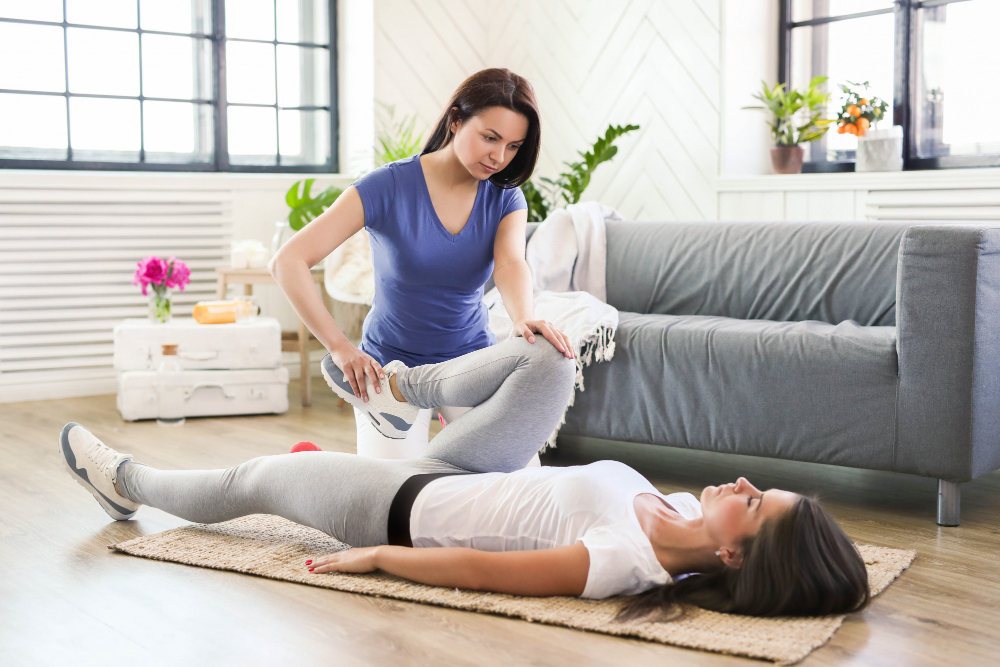How a Pelvic Floor Physical Therapist Identifies Pelvic Floor Symptoms in Women

A strong and healthy pelvic floor is essential for everything from preventing those moments when you laugh or sneeze to maintaining good sexual health. But a skilled pelvic floor physical therapist can be your best ally when things go awry.
Getting to Know Your Pelvic Floor
Think of the pelvic floor as your body’s quiet support system, a band of muscles spanning the lower part of your pelvis. These muscles are critical; they keep your pelvic organs securely in place and ensure that everything from bladder control to sexual functions runs smoothly.
A pelvic floor physical therapist often begins by helping you visualize and understand this area. With clear, easy-to-understand explanations, they remove the medical jargon and replace it with knowledge that makes you feel more in control of your body. This foundational understanding is key; it sets the stage for recognizing and effectively treating problems.
Spotting the Signs
How do you tell if your pelvic floor is the cause of your symptoms? Some signs are more obvious, like accidentally leaking urine when you laugh or jump or feeling a sudden urge to rush to the bathroom way too often. Other symptoms might be less talked about, like discomfort during intimacy or a nagging sense of heaviness in the pelvic area.
A pelvic floor physical therapist specializes in spotting these signs. During the evaluation, they’ll encourage a candid discussion about any symptoms you might be experiencing. This open dialogue helps them gather the clues needed to pinpoint your issues.
Exam Time: Not As Scary As It Sounds
Yes, the idea of a pelvic exam can be unsettling, but it’s a crucial step towards healing. Your therapist will conduct a gentle examination to assess the strength and tone of your pelvic floor muscles.
They’ll explain each process step, ensuring you’re comfortable and informed. The goal is to create a supportive environment where you feel secure and understood, minimizing stress and maximizing the focus on your health.
However, the focus will not be entirely on your pelvic floor. An assessment of your abdomen, hips and low back will also be completed to gather a full picture of what could be causing symptoms.
Your Personal Pelvic Floor Plan
Based on the findings from your exam, your therapist will craft a personalized treatment plan tailored just for you. This plan could include specific exercises to strengthen the pelvic floor, relaxation techniques to ease muscle tension, and practical advice for daily activities to manage symptoms.
The aim is to equip you with practical, easy-to-follow strategies that fit into your everyday life, making your journey to recovery as smooth as possible. Your therapist will demonstrate each exercise, ensuring you know how to do them safely and effectively, thus empowering you to take control of your recovery.
Resolve Physical Therapy: Your Health HQ
At Resolve Physical Therapy, our pelvic floor dysfunction approach is about personalized, compassionate care. We believe therapy should be tailored to each woman’s unique lifestyle and needs.
Our pelvic floor physical therapists are experts in creating dynamic treatment plans that alleviate symptoms and enhance your overall quality of life. We integrate cutting-edge techniques with time-tested methods, ensuring patients feel supported and empowered.
Here, you’re not just another appointment but part of a community committed to helping you heal and thrive.
Conclusion
If you’re dealing with pelvic floor dysfunction, remember, it’s not just “one of those things” you have to live with. Help is available, and it’s more effective and accessible than ever. At Resolve Physical Therapy, our pelvic floor physical therapists are ready to help you heal and get back to doing everything you love without reservation.
Reach out today and start your journey to reclaiming your health and vitality. Let’s get you back to your best self.
About Us
Resolve Physical Therapy helps youth and adult athletes in the Hudson Valley stay active and pain free. If you have a body, you’re an athlete. We help youth athletes, weekend warriors, Cross-Fitters, runners, complex cases, and busy people get back to doing what they love. This is not your typical physical therapy clinic.
